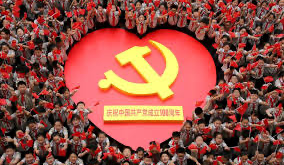Published:May04,2022

Some African countries have banned the export of grains and other farm produce to ensure food security and increase local poultry and livestock production. /Getty Images
Africa needs to increase its focus on large-scale commercial rather than subsistence farming to boost its long-term food security outlook, according to an agricultural expert.
The United Nations’ Food and Agricultural Organization estimates that about 60 percent of the farms in Sub-Saharan Africa are smaller than one hectare, and such farms comprise nearly 20 percent of the farmland.
Though such farms feed households, create employment and offer other benefits, like ecosystem preservation and environmental protection, Ogutubelieves they are not adequate to sustain the continent’s food requirements.
Churchill Ogutu, an economist at the Kenya-based Genghis Capital Investment Bank, said African governments and industry stakeholders need to do more to exploit the continent’s arable land and stop relying on surpluses of countries outside the continent to meet their consumption needs.
“We have not got it right, as a continent, tapping into the maximum potential of the agricultural sector,” Ogutu said.
“If we can pivot away from subsistence farming and into large scale farming, it will be able to offset reliance of imports we are seeing.”

FILE PHOTO: A woman farming in Burundi. /Getty Images
Africa may possess more than half of the world’s uncultivated arable land but problems such as land degradation and poor yields mean the continent is still a net importer of food.
Additionally, while Africa has witnessed a surge in its population growth in the last 40 years, countries have failed to equally boost agricultural production and consequently bolster their food security.
Africa’s current food crisis, Ogutu noted, is “dire” and has been exacerbated by the situation in Ukraine where Russia launched a special military operation on February 24.
Russia and Ukraine are considered among the world’s “breadbaskets” accounting for significant percentages of global wheat, barley, maize and sunflower oil production and African countries are no exception in benefitting from food imports from them.

FILE PHOTO: Fields of wheat and sunflower in Kramatorsk, Ukraine. The United Nations Secretary-General Antonio Guterres said Russia and Ukraine represent more than half of the world’s supply of sunflower oil and about 30 percent of the world’s wheat. /CFP Photo
Burundi, the Democratic Republic of Congo and Rwanda are some of the African countries that import more than 50 percent of their wheat from Russia and Ukraine, while Somalia and Sudan import more than 80 percent of their wheat from Russia and Ukraine.
Russia is also a major exporter of fertilizer and oil which are important inputs in farming and any rises in their prices result in higher food prices which aggravates the food crisis.
“As much as the trade between Africa and those two countries in aggregate terms is not significantly big, negative effects to transmission channels which bring in food and fertilizer from those two countries have indirectly impacted the African continent.”
Ogutu warned that countries’ national grain reserves will be depleted and international aid to stabilize the food situation may decline as individual nations prioritize taking care of their own citizens first.
Global food protectionism is also on the rise prompting several African nations to ban exports of grains and other food products to ensure food security and increase food and livestock production.
“As we were getting into this crisis, several countries did not have the necessary buffers to alleviate this kind of situation and give them the necessary room to maneuver.”
“Protectionism, whichever way it is, is not encouraged. Most countries will naturally go to protectionism to ensure there is food security within their borders. That will obviously play out as this crisis prolongs, so that is another negative consequence that will come out of this crisis.”
FILE PHOTO: Labourers carry maize bags at a United Nations World Food Program (WFP) warehouse in Yambio, South Sudan. /Xinhua
However, solving the food crisis, especially in the long term, will be easier said than done as the UN Secretary-General Antonio Guterres recently acknowledged that it was not possible to do so without the return of Russia and Ukraine to the global market.
In recognition of the gravity of the situation, the chairperson of the African Union, Macky Sall, who is also the president of Senegal, is set to meet Russian President Vladimir Putin to discuss freeing up of stocks of cereals and fertilizers.
According to Ogutu, African countries need a multidimensional solution approach by reinvigorating their agricultural policies, renegotiating financing of the sector by international partners and improving intra-Africa trade in food products.
“This is an opportunity to invest locally in the agricultural sector to ensure that there is food security going forward and improving the value chain.”
“It is critical that governments also enhance their capacity and not just focus on the raw materials of the agricultural food products.”
africa.cgtn.com
 Africa -China Review Africa -China Cooperation and Transformation
Africa -China Review Africa -China Cooperation and Transformation
